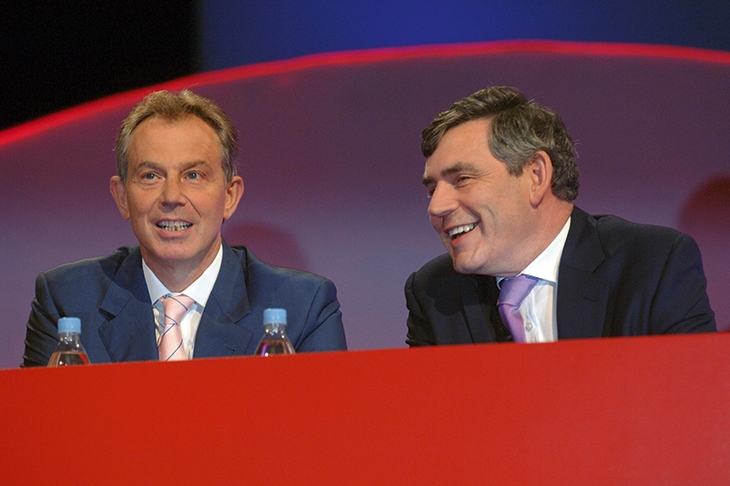On the day that Tony Blair left the Commons chamber for the last time (to a standing ovation led by the leader of the opposition) I was moved from Education to Health and, a few days later, was to accompany the new prime minister on his first official engagement — to a hospital in Kingston-upon-Thames.
I wandered into the PM’s office next to the Cabinet Room in 10 Downing Street early on that Saturday morning and noticed that something was missing. The sofa had gone. Gordon Brown had wasted no time in differentiating himself from a predecessor to whom the words ‘sofa government’ along with ‘spin’, ‘spads’ and ‘Iraq’ had attached themselves pejoratively like barnacles to a ship’s hull.
Gordon’s venture into furniture removal was superficial because, as Jon Davis and John Rentoul detail in this fascinating retrospective, the days when policy could be set from scratch by up to 25 competing egos sitting round the cabinet table had vanished long before. That sofa had been a convenient place for the PM to chat informally with colleagues and as far as I remember there was always a note-taker present. Cabinet was perfectly free to discuss policy as and when it wished to. I well remember John Prescott conducting a forensic critique of an education white paper almost line by line at cabinet when Ruth Kelly was education secretary.
This book is largely about how the Blair government worked rather than what it did. It draws upon the rich seam of material from a host of distinguished contributors to Davis’s and Rentoul’s University of London and King’s College courses which they’ve run for the past ten years.
We hear a whole range of voices with a unique and previously unheard contribution to make. Some of the most interesting speak in mandarin. The elegant phraseology of Robin Butler, Richard Wilson, Gus O’Donnell and the late Jeremy Heywood seeps from these pages, enriching and extending the accounts given in the diaries of Alastair Campbell and the various memoirs of the New Labour years.
A central theme is that, with two strong characters living next door to each other in Downing Street, the Blair government was in essence a coalition but one which was much more difficult for the Civil Service to handle than the actual coalition that followed in 2010, which was at least structured and open.
The constant battles between the Blair and Brown camps (the so-called Teebee/Geebees) were disruptive and energy-sapping for all concerned, but Tony was right not to resolve them by sending his old ally into exile either to another department or the back benches.
Labour’s incredible popularity (a 44 point poll lead two years before the 1997 election and not much different two years after) was based upon Brown’s Calvinistic solidity as well as Blair’s easy charm.
The fact is that neither the public nor party members (nor me until I was promoted to the cabinet) knew the full extent of these hostilities. There would have been bemusement and horror if Blair had followed the advice of some of his allies or the secret yearnings expressed in this book by some senior civil servants.
In any case, as Geoff Mulgan, the doyen of special advisers, argues cogently, without that creative tension Britain might well have joined the single currency and ‘the fact that both of them constrained each other’s power did reduce the number of mistakes they made’.
Only a few actual policies are explored here in any detail. On Bank of England independence and that decision to stay out of the euro there are measured (and gracious) first-hand accounts by Ed Balls. The Teebee/Geebees pitched Balls as close to Brown in the trenches as Campbell was to Blair, and yet both men are able in these accounts to lift their gaze above the fray.
The other policy issue examined is Iraq, already picked over to such an extent that there is nothing left to say. Davis and Rentoul gently point out that Chilcot found no evidence that Blair lied, still less that he deliberately misled Parliament or used intelligence improperly.
The authors’ self-declared aim is to take unfounded emotion out of the arguments as to whether Britain’s 73rd prime minister was hero or villain. It’s an uphill task. Even large chunks of today’s Labour party like to perpetuate many of the myths that this book dispassionately debunks. The authors cheerfully admit to being ‘slanted in Blair’s favour’ (as is your reviewer); but given that so much of today’s political commentary is slanted in the other direction, an account like this is long overdue.






Comments